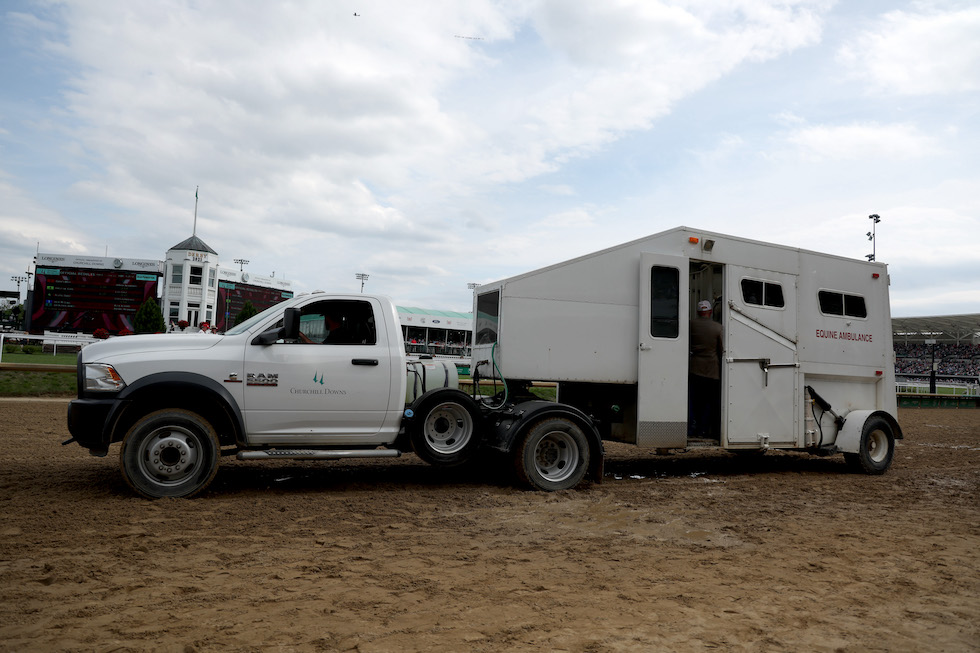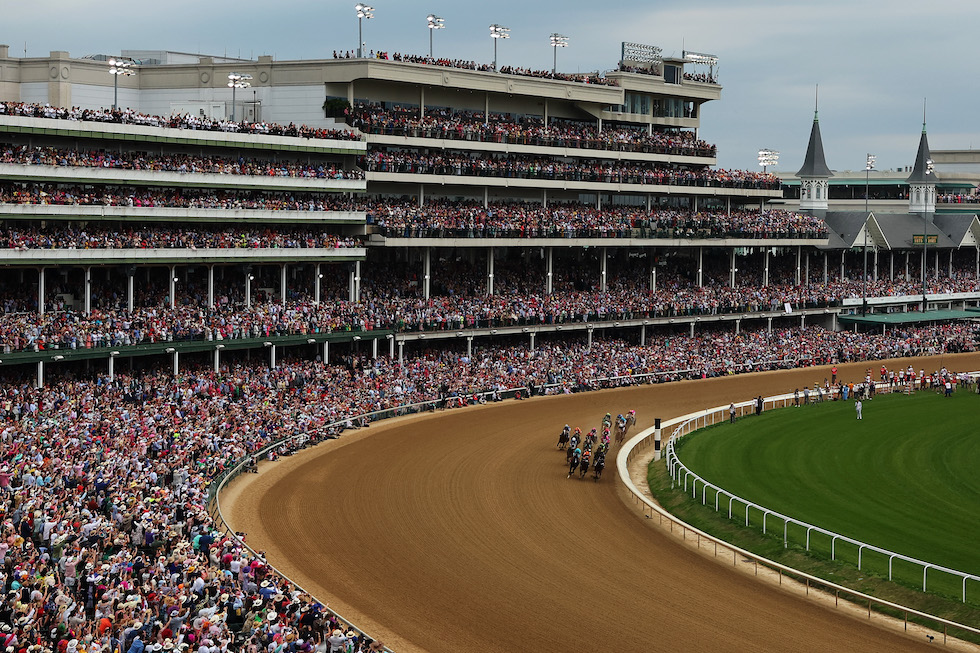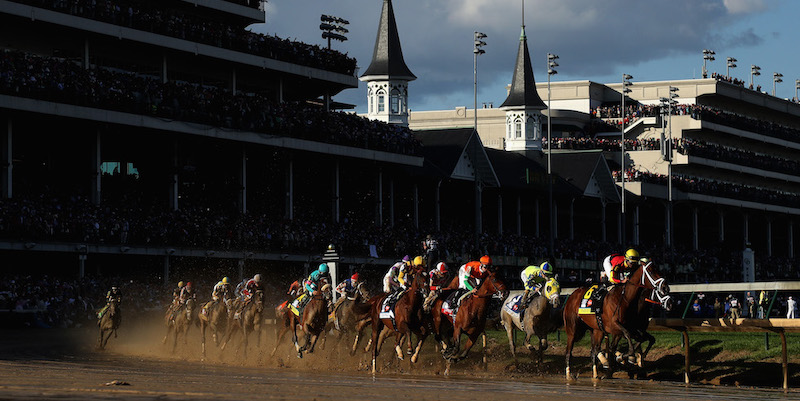Loading player
The Kentucky Derby is the best-known horse race in the United States and one of the most prestigious in the world: for almost 150 years it has been held once a year, on the first Saturday in May, at the Churchill Downs racetrack in Louisville, Kentucky . The race, which takes place over a length of just over two kilometers, is still followed by enthusiasts: this year there were more than 150,000 spectators and the Kentucky Derby was televised was followed by an estimated 15 million people, making it this year’s most-watched televised sporting event after February’s Super Bowl.
(Michael Reaves/Getty Images)
More than for this, and beyond the reports of the victory of the horse Mage and the Venezuelan jockey Javier Castellano, the Kentucky Derby was talked about because seven horses had died in the days and hours before the race, some of which were killed after serious injuries. Still others have been stopped for issues related to doping, which has been very present for some time and has already starred in some recent editions of the Kentucky Derby.
In short, the Kentucky Derby – considered the most representative event of the high society of the predominantly white southern United States – continues to be very popular with enthusiasts, but its problems are common to most horse racing, which in many parts are told as increasingly in crisis. «One might think that US horse racing is doing well, but it is not: the discipline has been in decline for decades» he wrote l’Economist. On the New York Times the journalist Joe Drape, who in recent days has been the author of many articles dedicated to the Kentucky Derby, he wrote that horse racing (“the oldest sport in the United States“) “is losing athletes, income and fans.”
Of the seven horses that died at Churchill Downs this year, five died between 27 April and 5 May and two on 6 May, just hours before the race, which as usual lasted around two minutes. Some horses collapsed, probably due to doping, others were seriously injured in training or preliminary competitions: the causes are not yet completely clear, given that even the injuries suffered on the track could have doping as their origin, with horses with horses driven to go so fast that they can no longer handle their ride.

(Rob Carr/Getty Images)
The fact that in certain races horses die or are suppressed is nothing new, nor is doping. Already in 2021 there was a lot of talk about it right after the Kentucky Derby, following the disqualification of Medina Spirit, the winning horse. And while the Kentucky Derby (which has never stopped in its history, not even for world wars or the coronavirus pandemic) continues to be relevant and followed, many other smaller races have the same problems, but much less money.

(Stacy Revere/Getty Images)
In the United States, horse racing has first of all a following problem: since 2000 more than forty racetracks have closed and most of the open ones host fewer and fewer races, which are held in front of fewer and fewer spectators: «Grandstands made to accommodate thousands of people they host a few dozen» writes theEconomist.
The causes are various: on the one hand there is a general disaffection for horse racing, also as a result of horse injuries and doping news; on the other hand, there is the fact that in recent years betting (historically crucial for interest in horse racing) has expanded to include sports and activities of all kinds, consequently reducing the turnover reserved for horse racing, which at one time, at least in parts of the United States, was the only business on which to bet. These two causes also have to do with each other, because the many cases of doping have also “alerted” bettors.
It is also believed that doping has spread precisely because, even in a sport with a large turnover largely due to betting, controls on horses in the United States have long been sparse and ineffective. As he wrote il Wall Street Journal, for decades there has been “a labyrinth of different rules from one state to another” and “the absence of a single national authority has made it difficult to impose reforms”. Something has changed in recent years, thanks to the creation of HISA (Horseracing Integrity and Safety Authority), a federal body created precisely to standardize the rules, but the widespread opinion is that there is still a long way to go, also because there is no association that manages and regulates all US horse racing events.
– Read also: Wrexham seasons
